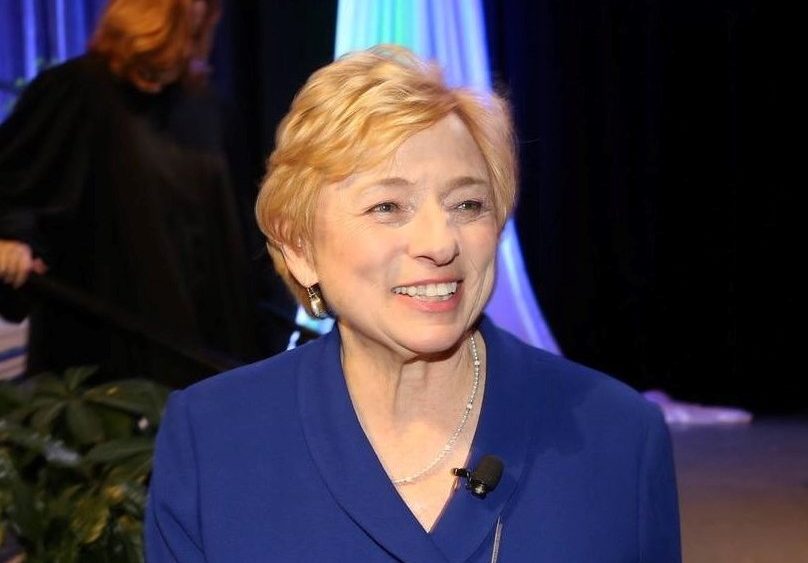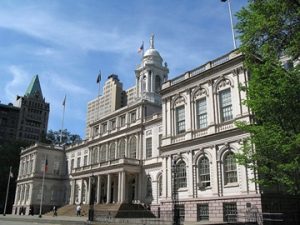June 10, 2021 •
Maine Gov. Signs Bill Increasing Registration Fees

Maine Governor Janet Mills
On June 8, Gov. Janet Mills signed Legislative Document 670 to increase lobbyist registration fees and Legislative Document 1377 amending campaign finance definitions. Legislative Document 670 raises registration fees for lobbyists from $200 to $250 and lobbyist associates from $100 […]
On June 8, Gov. Janet Mills signed Legislative Document 670 to increase lobbyist registration fees and Legislative Document 1377 amending campaign finance definitions.
Legislative Document 670 raises registration fees for lobbyists from $200 to $250 and lobbyist associates from $100 to $125.
Additionally, Legislative Document 670 allows employers to apply for a fee waiver and the commission may waive the fees in whole or in part if the commission determines an economic hardship to the applicant.
The registration fee increases were proposed by the ethics commission to cover operation costs for the lobbyist regulatory program and to improve its e-filing and public access system.
Legislative Document 1377 amends the definition of independent expenditure and allows a person or committee to request a commission determination that an expenditure is not an independent expenditure within seven days of disseminating the communication.
The bills go into effect 90 days after the end of the Legislature’s first special session.
April 28, 2015 •
Campaign Finance Bill in Iowa Signed into Law
Gov. Terry Branstad signed Senate File 135 into law on April 24, 2015. The bill increases political expenditures triggering filing requirements for committees to $1,000. The bill also amends the definition of an independent expenditure to be one or more […]
 Gov. Terry Branstad signed Senate File 135 into law on April 24, 2015. The bill increases political expenditures triggering filing requirements for committees to $1,000.
Gov. Terry Branstad signed Senate File 135 into law on April 24, 2015. The bill increases political expenditures triggering filing requirements for committees to $1,000.
The bill also amends the definition of an independent expenditure to be one or more expenditures in excess of $1,000. It also makes anonymous contributions in excess of $25 illegal.
Beginning January 1, 2016, all committees not already required to file electronically must do so by 4:30 p.m. of the day the filing is due.
Senate File 135 takes effect July 1, 2015.
The New York City Council has introduced legislation imposing increased independent expenditure disclosure requirements. Introduction No. 148-A requires any electioneering communications to include the phrase “paid for by,” whether typed or spoken, followed by the identity of the top five […]

The New York City Council has introduced legislation imposing increased independent expenditure disclosure requirements. Introduction No. 148-A requires any electioneering communications to include the phrase “paid for by,” whether typed or spoken, followed by the identity of the top five donors to the organization sponsoring the communication.
Campaign Finance Board Executive Director Amy Loprest testified before the council on April 25, 2014, supporting the legislation. In support of the bill, Loprest stated, “Providing voters with clear information about who is responsible for these campaign messages will reduce the likelihood of confusion among voters.”
Photo of the New York City Hall by Momos on Wikipedia.
September 11, 2013 •
Independent Expenditure Reform Legislation Introduced in NYC
Legislation would close “loophole” in state law
 Several members of city council announced the introduction of legislation to reform independent expenditures made in the city. The legislation would close a “loophole” in state campaign finance law allowing limited liability companies to give at the individual aggregate contribution limit of $150,000 instead of the corporate aggregate limit of $5,000. Such a change would only apply to city elections.
Several members of city council announced the introduction of legislation to reform independent expenditures made in the city. The legislation would close a “loophole” in state campaign finance law allowing limited liability companies to give at the individual aggregate contribution limit of $150,000 instead of the corporate aggregate limit of $5,000. Such a change would only apply to city elections.
The legislation would also require the disclosure of the top donors to independent expenditure communications.
Finally, the legislation would force any independent expenditure communication to inform voters the communication was not subject to the city’s campaign finance laws.
Photo of the New York City Hall by Momos on Wikipedia.
November 7, 2011 •
American Crossroads Wants Candidate Participation in its Ads
Asks FEC
 The Federal Election Commission has received an advisory opinion request asking if an independent expenditure-only PAC may use incumbent members of congress in its advertisements.
The Federal Election Commission has received an advisory opinion request asking if an independent expenditure-only PAC may use incumbent members of congress in its advertisements.
Independent expenditure PAC American Crossroads has formally requested it be allowed to produce and distribute television and radio advertisements featuring on camera footage or voice-overs of incumbent members of congress up for re-election. Conceding the purpose of the ads would be to improve the public’s perception of the congress member, the advertisements would focus on policy and legislative issues.
American Crossroads is seeking confirmation and guidance as to whether the advertisements qualify as coordinated communications, are in-kind contributions, or may limit the PAC’s ability to independently expend funds in favor of the candidate.
The advisory opinion request can be found here.
September 21, 2011 •
Bloomberg News Looks at the Legacy of James Bopp
Bloomberg writer Jonathan Salant takes a look at the 30-year career of James Bopp, Jr. and the effect of his efforts on the world of campaign finance.
Salant begins with: “Attorney James Bopp Jr. has spent 30 years fighting limits on campaign spending, and next year’s political landscape could be transformed by his labor: An election season in which at least $6 billion is likely to be spent, more than $700 million higher than 2008.”
The article assesses the increase we are seeing in political spending. It also details Bopp’s landmark legal challenges over the years, his loyalty to his home state of Indiana, and how free speech is at the heart of his mission.
For the full text of the article, got to “ Election Spending to Exceed $6 Billion Thanks Partly to Jim Bopp.”
November 19, 2010 •
Wisconsin G.A.B. releases Fall 2010 Independent Expenditure Figures
The Government Accountability Board (G.A.B.) has released figures detailing the $9.96 million spent in 2010 as independent expenditures by groups including labor union and corporation political action committees.
 Ninety-nine percent of expenditures went to the Fall general election. Corporations and other organizations registered with the G.A.B., so-called 1.91 organizations, spent $2,499,494. Labor union PACs spent $1,688,880 with corporation PACs spending $1,950,524. Other committee types spent $3,791,573 for a grand total of independent expenditures for the Fall 2010 Elections of: $9,930,472.
Ninety-nine percent of expenditures went to the Fall general election. Corporations and other organizations registered with the G.A.B., so-called 1.91 organizations, spent $2,499,494. Labor union PACs spent $1,688,880 with corporation PACs spending $1,950,524. Other committee types spent $3,791,573 for a grand total of independent expenditures for the Fall 2010 Elections of: $9,930,472.
“This is the first time corporations and organizations other than PACs have been required to report spending on political campaigns, “ said Kevin Kennedy, director and general counsel of the G.A.B. “This shows the importance of disclosure of political activity. And yet, so much more campaign spending was not required to be disclosed”.
You can read the G.A.B.’s news release here. Data on independent expenditures is available to the public in Wisconsin’s Campaign Finance Information System at: http://cfis.wi.gov.
Photo of the Wisconsin State Capitol at night by Darin ten Bruggencate on Wikipedia.
State and Federal Communications, Inc. provides research and consulting services for government relations professionals on lobbying laws, procurement lobbying laws, political contribution laws in the United States and Canada. Learn more by visiting stateandfed.com.

